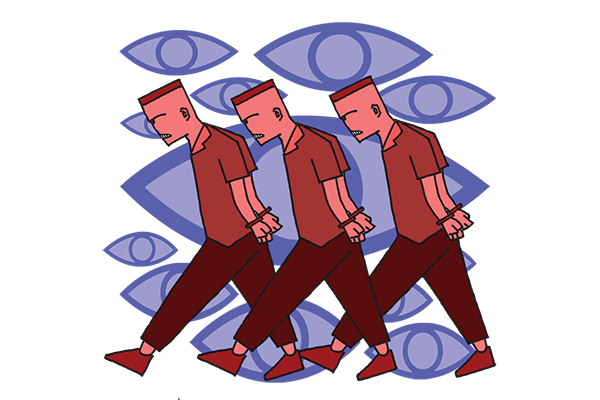In the last seven days, the UT Police Department has performed six emergency detentions without warrant, according to the UTPD daily crime log.
An emergency detention occurs when a police officer has reason to believe an individual poses a risk to themselves or those around them from issues related to mental illness and takes them into custody, according to the Health and Safety Code Title 7. Spikes in these detainments do not have a sole cause, but times of high stress like finals or personal pressures may contribute, UTPD Chief David Carter said.
Family members or friends of the person typically call police with concerns that alert officers of people who may need help. UTPD officers arrive at a scene and assess the mental health of a person based on their behavior and witness testimony, Carter said. Kelly Soucy, director of Student Emergency Services, said UTPD officers are all trained to handle people in distress.
Carter said some indicators of mental health concerns include thoughts of suicide, appearing delusional or signs of self-harm.
“(These) are circumstances where police officers … know this person needs to be evaluated by a mental health professional to get them through that particular issue,” Carter said.
After determining need, officers will typically take the person to Dell Seton Medical Center on campus, Carter said. In the case of someone unwilling, officers have the right to transport them to a mental health facility.
“If we have reason to believe that they took a lot of medication … but they say I don’t want to go to the hospital, we say, ‘Well we’re calling (emergency medical services),’ and EMS will see if they need immediate treatment,” Carter said. “In most cases, (EMS) will transport them. If the person refuses to go with them, we put them under a police officer emergency detention. Then we transport them to the hospital.”
Psychology freshman Sophia Gonzalez said she is concerned about the potential emotional damage that emergency detentions could have on students. She said the credibility of a witness account is difficult to determine.
“That could be traumatic, not just for the people that are watching it but also for the person — because if I think that something’s wrong with (my roommate) … I might be wrong,” Gonzalez said. “I might be misreading the vibe she’s giving me, and (she’s) actually okay.”
Carter said officers look for corroboration between a family member or friend’s testimony and observed behavior.
“We’re going to assume that if a person calls 911, somebody is in trouble,” Carter said. “We don’t base a call solely on what an individual tells us on that phone call. … We are obligated to respond and look into the situation to see if it supports what is being said.”
Once at the hospital, detainment does not last more than 48 hours. A physician will evaluate and release the detained person unless they deem admission necessary, according to the Health and Safety Code Title 7.
Soucy said Student Emergency Services can offer support to students who return from an emergency detainment.
“We don’t focus on the diagnosis,” Soucy said. “It’s more how are you connected — how can we make sure that the next time something comes up, you have the skills and the resources to make sure you’re safe.”





















